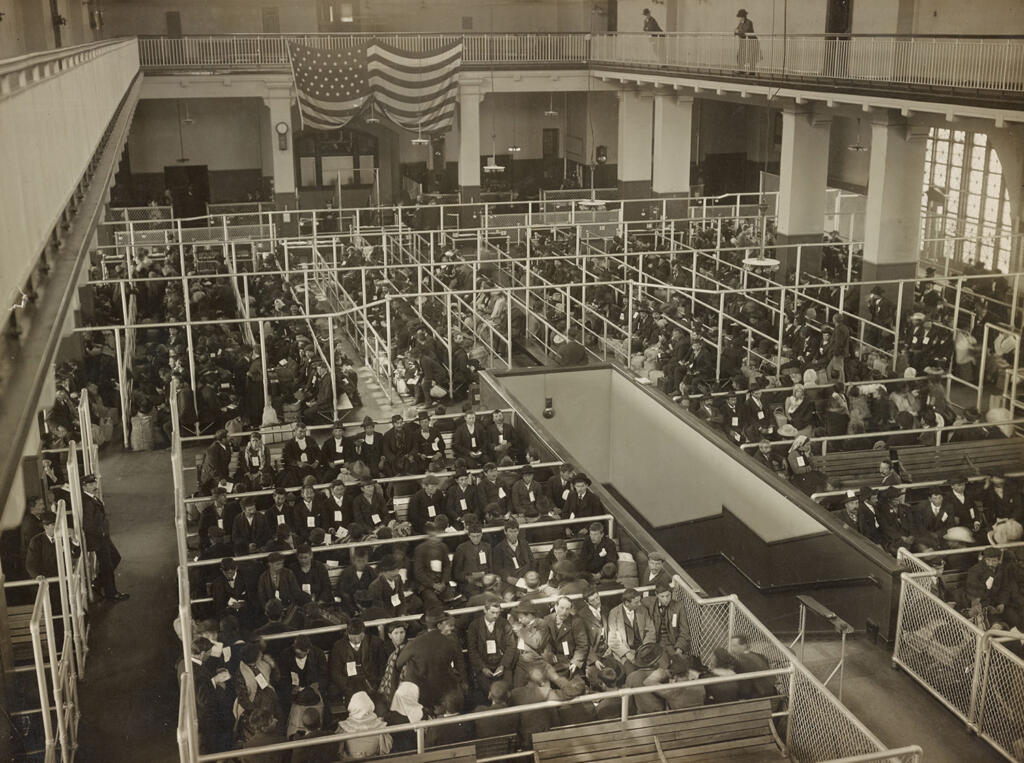B06Migration and the Welfare State in the United States: Global and National Dynamics in Bureaucratic Human Differentiation
The project examines the bureaucratic sorting of people that underlies immigration policy and the welfare state in the United States in the interwar period. Immigration and social policies determine national access and citizenship rights, as well as claims to social solidarity and social benefits. At the same time, it is precisely in these areas that transnational challenges such as labor mobility, global trade, international warfare, and (de)colonization have had the most noticeable sociopolitical and economic effects. The project argues that nation-states inscribe and operationalize central categories of human differentiation, such as ethnicity, race, gender and class, in the context of transnational challenges. It shows how processes of differentiation, nation-building and globalization are constitutive of each other. The hypothesis of the project is that the codification of knowledge about immigrants shaped the incipient welfare state in the context of the broader cultural, political, and socioeconomic transformations between the World Wars.

Background
The years between the World Wars mark a momentous transition in both policy areas: the change from the relative freedom of movement to the restrictive regulation of immigration on the one hand, and the transition from an abstinent to an active social welfare state on the other. At the same time, the interwar period is characterized by the growing global economic influence of the United States, political debates about its international role, and new socio-cultural challenges, including immigration from Mexico and the internal migration of African Americans. The project examines how a wide range of social scientists, civic reformers, trade unionists, immigrant activists, government officials, and business lobbyists mutually constructed migration and social policy on the basis of categorizations such as “race”, “ethnicity”, “needs” and “entitlements.” It examines how scientific taxonomies, legal systems, bureaucratic languages and institutions that categorized people were contingent on changing historical circumstances. In particular, it illustrates the significance of categorization processes for negotiating the tensions and contradictions of nation-state-building in the context of the accelerating global flow of capital, commodities, and people.
Plans for Further Research
In our future research, we want to expand our project by looking at the relationship between immigration, consumer capitalism, and the politics of consumption in the twentieth-century U.S. The transition to a consumption-oriented economy and the possibility of “freedom from want” are central experiences of twentieth-century industrial modernity. Many social scientists, civic reformers, bureaucrats, immigrant activists, trade unionists and other public figures who shaped the politics of mass consumption did so based on their analysis of the “immigration problem” and support of restrictive and racist immigration legislation. We want to explore their tools and methods of categorizing immigrants according to, for example, diet, health, education, skills, social habits, domestic life, sanitation and income levels, as part of the construction of new consumer subjectivities. Our research suggests that many of our protagonists used immigration-related taxonomies to define the categories of human differentiation underlying the modern politics of consumption. Seen from this perspective, the anti-immigrant sentiment in the U.S. today has less to do with the number or origin of immigrants than with a crisis of consumer society in an age of limited resources.
Conference Participation and Organization:
Panel „Immigration and the ‘American Standard of Living’: How the Encounter with Foreign Peoples in the Progressive Era Shaped the Politics of Consumption in the U.S.”, Jahrestagung der Organization of American Historians (OAH), Chicago, April 2025.
Vortrag, Axel Schäfer, "The ‘Tempest Tossed’ and the ‘People of Plenty’: Migration and the Politics of Consumption in the U.S. Since the 1880s”, Cambridge University American History Seminar.
Internationaler Workshop, „Migration and Consumption", Mainz, Juni 2024.
Vortrag, Anja-Maria Bassimir, „Scoring Health in Maine: Nutrition Extension and the Measuring of Health Between the Wars“, Jahrestagung der Historiker in der Deutschen Gesellschaft für Amerikastudien (DGfA), „Health in America“, Erfurt, Mai 2024.
Vortrag, Anja-Maria Bassimir, „A Taste of America: How Turn-of-the-Century Marginalization of Immigrant Food Ways Defined an American Standard of Living”, Konferenz der European Association of American Studies (EAAS), München, April 2024.
Symposium „Migrants, Environmental Knowledge, and Consumer Society”, University of California Berkeley, September 2023. Conference Report.
Panel „Ownership, Human Differentiation, and the Politics of Consumption”, Jahrestagung der Deutschen Gesellschaft für Amerikastudien (DGfA), Rostock, Juni 2023.
Organisation der der Jahrestagung der Historiker in der Deutschen Vereinigung für Amerikastudien (DGfA), „Labor and Capital in U.S. History,“ online in Mainz 2021 und 2022 (Pandemiejahre).
Panel „Immigration“ auf der Jahrestagung der Historiker in der Deutschen Vereinigung für Amerikastudien (DGfA), „Reform Movements in U.S. History“, Bad Bevensen, 2020.






